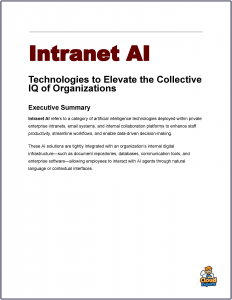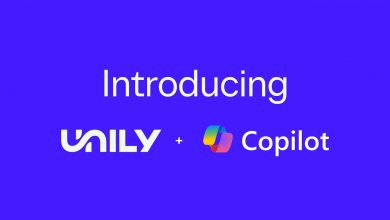Employee Self-Service Agent in Microsoft 365 Copilot
The ESS Agent enables employees to perform tasks like retrieving benefits information, requesting leave, checking IT ticket statuses, or ordering new equipment directly within the Copilot interface.
 Explore how the Employee Self-Service (ESS) Agent in Microsoft 365 Copilot streamlines HR and IT support.
Explore how the Employee Self-Service (ESS) Agent in Microsoft 365 Copilot streamlines HR and IT support.
With AI-powered workflows, personalized answers, and seamless integration with tools like Workday, ServiceNow and SAP SuccessFactors, employees get fast help—while support teams reduce tickets and boost efficiency.
The Employee Self-Service (ESS) Agent in Microsoft 365 Copilot is an AI-powered tool designed to streamline HR and IT-related tasks, enhancing employee productivity and reducing administrative burdens.
Intranet Ai
The ESS Agent integrates with Microsoft 365 apps like Teams, Outlook, and the Copilot Chat interface, leveraging large language models and Microsoft Graph to provide context-aware, secure responses grounded in organizational data, such as HR policies, payroll details, and IT systems.
The ESS Agent enables employees to perform tasks like retrieving benefits information, requesting leave, checking IT ticket statuses, or ordering new equipment directly within the Copilot interface, eliminating the need to navigate multiple tools.
For example, an employee can ask, “What’s my remaining PTO?” and the agent pulls personalized data from systems like Workday or SAP, ensuring accuracy and privacy. Managers can also use it to handle tasks like submitting transfer requests or updating team information.
Customizable through Copilot Studio, admins can tailor the agent with pre-built templates, workflows, and connectors to HR/IT systems like ServiceNow, ensuring it meets organizational needs. It supports natural language queries, offering 24/7 access to authoritative resources, such as company policies, which reduces search time and support tickets.
Natural Language Interface
Microsoft’s internal pilots show employees using the ESS Agent are 25% more likely to get accurate responses and 49% less likely to create support tickets, boosting efficiency and cutting costs. The agent maintains enterprise-grade security through Microsoft 365’s compliance and permission frameworks, ensuring data privacy.
Admins can start with pre-built templates in Copilot Studio, designed for common ESS tasks like retrieving payroll information or updating employee records. These templates connect to existing HR/IT systems via pre-configured connectors, ensuring seamless data flow while adhering to organizational permissions.
Natural language processing allows employees to interact conversationally, while admins can define specific prompts or responses to align with company terminology or policies. For instance, a customized ESS Agent might guide employees through a tailored onboarding process, pulling resources from SharePoint and automating IT setup.
Templates
Pre-built templates in Copilot’s ESS Agent are customizable workflow frameworks available in Copilot Studio, designed to streamline HR and IT tasks with minimal setup.
These templates leverage Microsoft Graph and integrations with systems like Workday, SAP, ServiceNow, and Microsoft 365 apps (e.g., Teams, Outlook) to enable efficient, secure employee self-service. Below are examples of pre-built templates, illustrating how they function and can be tailored to organizational needs.
Leave Request Template: This template automates the process of submitting and approving leave requests. An employee can initiate a request via Copilot Chat in Teams by saying, “I need to take a vacation day next week.”
The ESS Agent, using Microsoft Graph, retrieves the employee’s leave balance from an HR system like Workday, checks company policies, and routes the request to the appropriate manager for approval. The template includes pre-configured steps for notification (e.g., via Outlook or Teams) and updates the HR system upon approval. Admins can customize it to include additional fields, such as reason codes, or integrate with payroll systems to adjust accruals, ensuring compliance with organizational rules.
Benefits Inquiry Template: Designed to handle queries about employee benefits, this template allows users to ask questions like, “What’s my health insurance coverage?”
The ESS Agent pulls data from HR systems like SAP SuccessFactors, presenting details on medical plans, retirement contributions, or wellness programs in a conversational format. The template ensures responses respect data permissions, only sharing information the employee is authorized to access. Admins can modify it to include specific benefits unique to the organization, such as commuter subsidies, or add links to external portals for enrollment.
IT Ticket Status Template: This template streamlines IT support by enabling employees to check ticket statuses or submit new requests. For example, an employee might ask, “What’s the status of my laptop repair ticket?” in Copilot Chat.
The agent connects to ServiceNow, retrieves real-time updates, and provides a summary, reducing helpdesk inquiries. The template includes workflows for ticket creation, escalation, and resolution notifications. Admins can customize it to prioritize urgent tickets or integrate with other IT tools like Jira for broader issue tracking.
Onboarding Template: This template automates new-hire processes by guiding employees through tasks like completing forms, accessing training, or requesting equipment. For instance, a new employee might ask, “What do I need to do for onboarding?”
The ESS Agent pulls resources from SharePoint, assigns training modules, and triggers IT setup requests (e.g., email account creation) via ServiceNow. Admins can tailor it to include company-specific steps, such as compliance training or department introductions, and configure multi-agent orchestration to coordinate tasks across HR and IT systems.
Payroll Inquiry Template: This template enables employees to access payroll information, such as payslip details or tax forms, by asking questions like, “Can I see my latest payslip?”
The ESS Agent retrieves data from payroll systems like ADP, presenting it securely in Teams or Copilot Chat. The template includes steps for authentication to ensure privacy. Admins can customize it to support additional queries, like expense reimbursements, or integrate with finance systems for real-time updates.
Low Code
These templates, built in Copilot Studio’s low-code platform, allow admins to adjust workflows, add custom prompts, or incorporate company-specific policies without extensive coding.
For example, an admin can customize a workflow to enable employees to submit transfer requests in Teams, where the ESS Agent pulls relevant data, routes the request for approval, and updates the HR system automatically. Workflows can include conditional logic, such as escalating IT tickets based on urgency, or integrate with third-party apps like Jira for cross-functional tasks.
What’s New in AI?
The use of these self-serve portals and pre-built workflow templates have been in use for many years now, so what’s the new dimension that Ai brings?
Unlike traditional workflow automation tools, Copilot’s integration leverages advanced large language models (e.g., GPT-4o), Microsoft Graph, and natural language processing to deliver a more intelligent, contextual, and seamless employee experience, transforming standard templates into dynamic, AI-driven solutions.
The primary value lies in Copilot’s ability to provide conversational, context-aware interactions. Employees can engage with templates like leave requests or IT ticket status checks using natural language queries (e.g., “How many vacation days do I have?”) in familiar platforms like Teams or Outlook, rather than navigating rigid forms or portals.
Microsoft Graph grounds responses in real-time organizational data from HR/IT systems (e.g., Workday, ServiceNow), ensuring accuracy and personalization while respecting permissions. This reduces friction and empowers employees to resolve queries instantly, with Microsoft’s internal data showing a 25% increase in accurate responses and a 49% reduction in support tickets.
Multi-agent Orchestration
Additionally, Copilot Studio’s low-code platform enhances template customization, allowing admins to tailor workflows (e.g., adding custom approval steps to a payroll inquiry template) with greater ease and flexibility than traditional systems.
Multi-agent orchestration further elevates value by enabling templates to coordinate complex, cross-departmental tasks, like onboarding, where HR and IT agents collaborate seamlessly. Integration with Copilot Pages also allows template outputs to be shared as editable, collaborative canvases, fostering team alignment.



